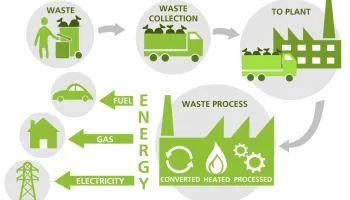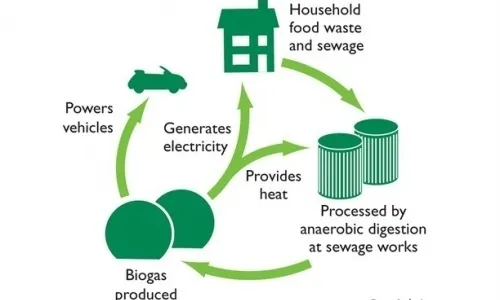According to the World Bank’s “What a Waste 2.0: A Global Snapshot of Solid Waste Management to 2050” report, waste generation across the world is expected to grow roughly by 3.4 billion tonnes per year by 2050.
Sarawak is set to establish a strategic partnership with the Swedish government in managing the state’s waste-to-energy (WtE ) system.
Sarawak Premier, Datuk Patinggi Tan Sri (Dr) Abang Haji Abdul Rahman Zohari bin Tun Datuk Abang Haji Openg said the state is keen on emulating Sweden’s WtE system as it has been proven to be more successful than those of other European countries, according to the report.
“I am interested in Sweden’s capability in the WtE industry, and since Sarawak has almost similar resources, we can emulate its solid waste management method,” he said.
He also expressed his interest in Sweden’s cross-border power grid, which allows the European country to export electricity to neighboring countries such as Denmark, Norway, Finland, Germany, Lithuania and Poland.
He said Sarawak could emulate this and export electricity to Kalimantan, Indonesia.
“Thus, to ensure the future wellbeing of the people, now is the right time for the state government to take steps to strengthen its solid waste management system by generating new energy through WtE ,” he said.
Compared to solar energy which requires lots of open spaces while production of hydrogen fuel is expensive and not economically feasible, WtE is the best option to be included as part of the state renewable energy target.
WtE serves to complement the existing fossil fuel power generation plant.

The advantages of WtE are its footprint is small compared to solar energy, is safe and reliable, can operate in any weather conditions, reduce waste volume by more than 90%, reduce the load on landfill and produce stable and odour-free residue.
The WtE is described as the process of generating energy in the form of electricity and/or heat from the primary treatment of waste, or the processing of waste into a fuel source.
Close to half of Sweden’s household trash is burned in the nation’s 33 waste-to-energy, or WtE , plants. Those facilities provide heat to 1.2 million Swedish households and electricity.
Sweden is not only saving money by replacing fossil fuel with waste to produce energy, but it is also generating US$100 million (RM465.05 million) annually by importing trash and recycling the waste produced by other countries.
In fact, the country has ambitious targets to generate 100% renewable energy by 2040 and achieve net-zero emissions by 2045. These goals are already within reach, quoting the Swedish Energy Agency.
According to the agency, more than 90% of the renewable resources for district heating — which warms up indoor environments and supplies hot water — are produced from biomass and waste incineration.
According to the Malaysian Investment Development Authority (Mida), WtE facilities can substantially contribute toward Malaysia becoming a zero-waste nation due to its hygienisation process of waste.
The Housing and Local Government Ministry plans to build six WtE plants across the nation by 2025.
At present, a WtE plant is located in Port Dickson, Negri Sembilan, which started operation in June 2019. Others in the pipeline are in Sungai Udang, Melaka; Bukit Payung, Terengganu; Seelong, Johor; Samling, Selangor and Jabor, Pahang.
These initiatives have been highlighted in the 12th Malaysia Plan 2021-2025 (12MP) as part of the country’s commitment to achieve net-zero carbon emissions by 2050.






